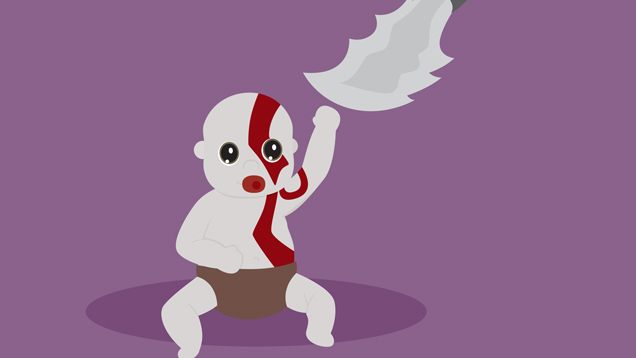Mythology: The origin of video games
 CREDIT: CANDIS BROSS
CREDIT: CANDIS BROSSYour favourite video game character may actually come from ancient mythology.
Game designers can draw inspiration from some of their favorite realms of their imagination. One specific realm that has inspired a variety of games is mythology.
For Fanshawe student Nakita Thapar, mythology has been prevalent in her life.
“Everything I learned [studying mythology] I now see in my every day life, in movies, video games and TV shows,” she said. “I understand it all so much better.”
Mythology is home to various accounts of gods, unique creatures and situations that men overcame or fell to.
Stefanie Ketley, professor of Language and Liberal Studies at Fanshawe, said that the roots in a specific mythology reflect the culture that created it.
“There is a strong theme in mythology [where] human beings are trying to overcome challenges presented by nature,” Ketley said. “There is good and evil, which reflects on the human condition. The good is the aspirations of the culture and the evil is the fears that the culture has.”
In the video game industry, these aspects can be used to create an experience for the consumer. Games such as God of War and Legendary encapsulate all three of these aspects, specifically in Greek mythology.
In God of War, you play as Kratos, a demigod who challenges his own on Mount Olympus to make his way up to Zeus to end his reign. The series draws on Atlantean mythology, the prequel to Greek mythology, and brings in Gaia, the mother of Zeus, and focuses on the war of titans against gods.
Legendary brings Greek mythology into the modern world. The protagonist activates Pandora’s box, causing mythical creatures to flood the streets of New York City. It becomes the player’s responsibility to use modern weaponry and special powers from the box to take down all the creatures.
Ensemble Studios’ game Age of Mythology is a Real Time Strategy (RTS) game that allows players to build up an empire or follow the campaign and play as Arkantos, the soldier of Poseidon and Zeus recovering Poseidon’s trident, whose goal is to take back Greece.
The game incorporates Egyptian and Norse mythology to the gameplay, allowing players to combat one another as a variety of different gods, creatures and soldiers. In the expansion later released, Atlantean mythology became another choice for combat and provided a sequel to Arkantos’ story. Arkantos’ son Kastor becomes the main character and takes on the titan god Kronos with the help of other titan gods.
The Final Fantasy series incorporates mythology with religions such as Christianity and Hinduism. In the games, the Leviathan is based on the biblical sea monster Livyatan. In Christianity, the Leviathan was portrayed as the satanic avatar for the demon of envy. Shiva is a character in the series that could be a female rendition of the Hindu god Shiva.
Items, weapons and equipment such as Zeus’ wrath, Minerva’s bustier, Hades’ equipment, Hermes’ sandals, Artemis’ bow and Perseus’ bow refer to Greek and Roman mythology.
One issue that arises in these games is the liberties taken by the game developers to make their own renditions of the creatures or ways that the situations took place. For Ketley, she sees these games as an example of how people can incorrectly interpret the specific mythology.
“The creatures and the stories were written in a different time,” she said. “They adapt from paintings and the contemporary art and use it to create their own monster [or story].”
“You’ll find that some have continuity and some have additions.”
However, Ketley said that some creatures have remained the same throughout time.
“The hydra is one example of a creature that still looks relatively the same as it did,” Ketley said. “So game designers and artists do keep some aspects the same but could take liberties with others so that it fits the experience they are going for.”
One mythology that Ketley says is picking up recognition in popular culture is Norse mythology. Game of Thrones and Marvel’s The Avengers are franchises that have taken various aspects from the culture and have incorporated them into a situation similar to Legendary. The games base will focus on the interpretations from the specific franchise.
“Norse mythology is definitely one of the more exciting mythologies. There is a strong human element present,” Ketley said. “The god Odin for example is shown with an eye patch because he was blinded in his quest for knowledge and he is not shown as a tyrant to the degree that Zeus is.”
However, Odin in Age of Mythology is modified to fit the war aspect of the game. Odin regenerates the heath of his soldiers and makes infantry stronger all while turning away from his title as the god of poetry and art.
Building a game based on mythology or religion allows the designers to contribute interpretations of how these realms could exist and interact with the world. As more games learn from each other, specific aspects can inspire new directions for the interpretations and build a cohesive virtual reality for players to immerse themselves in.














